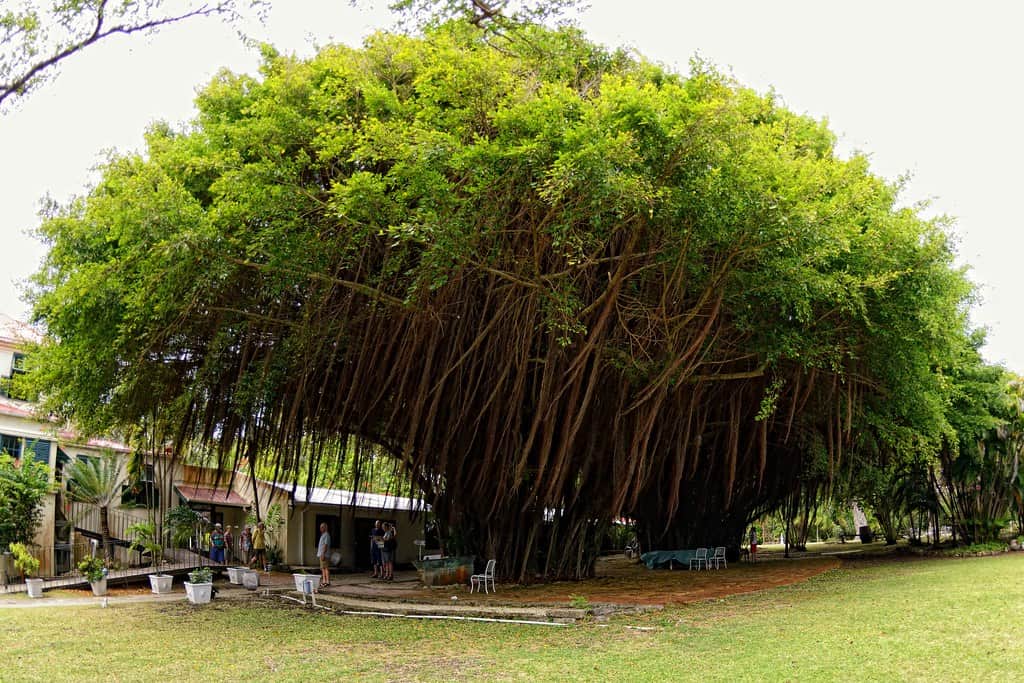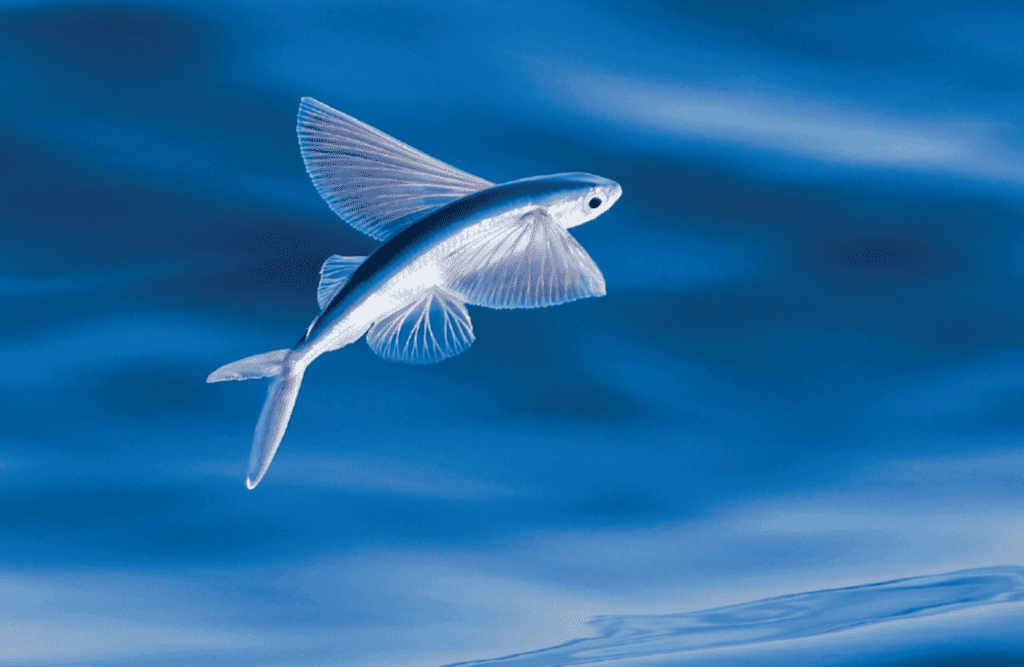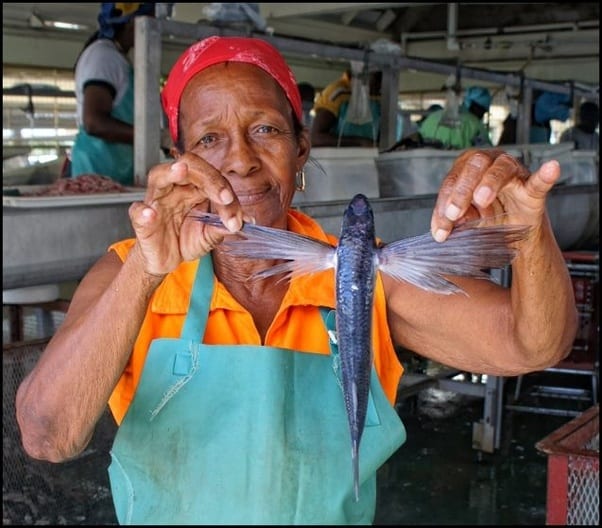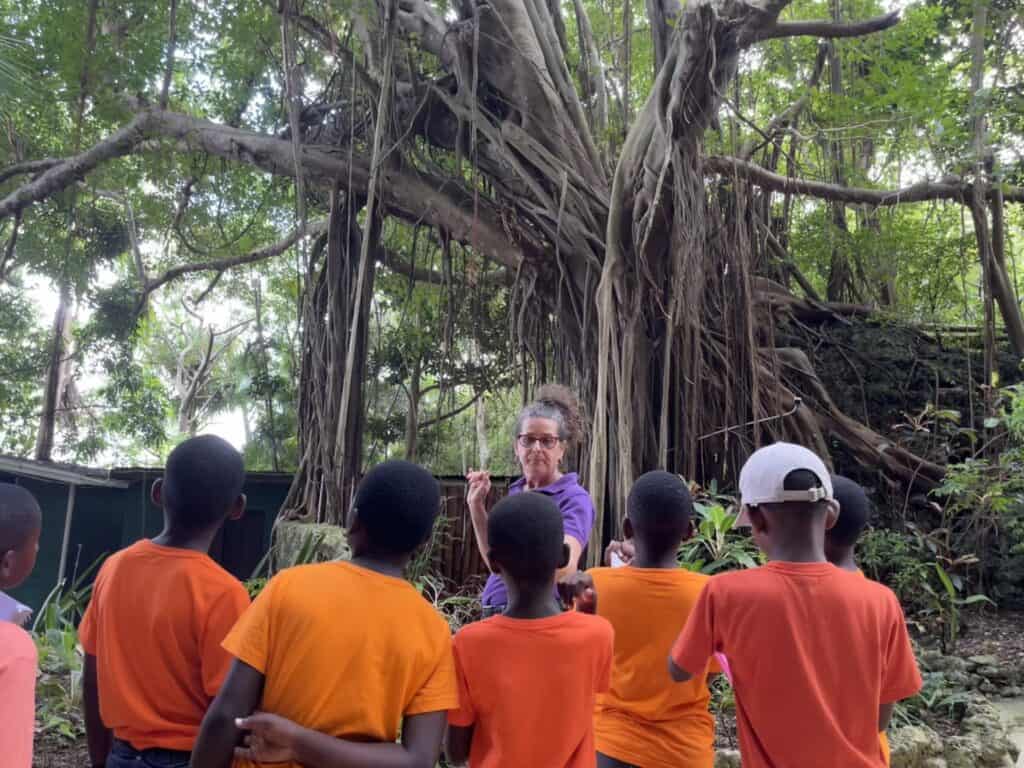Perspectives is an ongoing series by the Cari-Bois Environmental News Network which aims to give Caribbean scientists, explorers, and nature enthusiasts the platform to express themselves and share important environmental information in creative ways. This latest piece was written by Barbadian environmentalist and writer, Kyle Foster.
Annually, Barbados holds its Independence and Republic Day celebrations in November.
On the island, the month is an increased time of awareness for cultural traditions.
From eating cou-cou and flying fish (the island’s national dish) to attending the annual Independence Day Parade, the island teems with national pride.
But intertwined in the national festivities are also subtle nods to the island’s natural heritage which has defined the island nation throughout its history.
So how has the natural environment influenced Barbados’ culture and identity?

Bearded Fig Tree (Fiscus citrifolia)
The island’s name – Barbados – was inspired by the Bearded Fig Tree which dominated the island’s landscape during Portugal’s colonisation.
The tree’s aerial roots, which droop from its branches, cause it to appear bearded.
This led to the island’s colonisers naming the island “Los Barbados” which means “the bearded one.”
But without strategic conservation measures, Barbados could see this tree disappear from the island’s landscape.
Studies have shown that significant swaths of the trees have been removed due to agriculture and tourism activities.
Today, it is estimated that only 15 per cent of the original cover of these trees remain.
With the island only being 430 square kilometers, these remaining trees must “compete” with many areas of need such as housing, tourism, and agriculture, for land space.

Brown Pelican (Pelecanus occidentalis) and Flying Fish (Hirundichthys affinis)
“Pelican Island” once defined as Barbados’ coast as it contained a thriving colony of Brown Pelicans which is Barbados’ national bird.
But the tiny island was eventually incorporated into the Deep Water Harbour project (building of the Barbados Port).
Since then, sightings of the pelicans have decreased.
It is incumbent on the nation to ask, what will happen to Barbadians who will grow up to never see a brown pelican if they are all lost to “development?”
Similarly, the flying fish – the island’s national fish – was once abundant.
But in recent times, studies have shown that the population of flying fish in the island’s water has decreased.

The flying fish does not just have a cultural value as part of the island’s national dish but it also has an economic one.
Fisherfolk and other Barbadians that depend on flying fish – like vendors serving the popular dish of cou-cou and flying to tourists – have felt the effects of decreasing yields of the fish.
For example, the decrease in flying fish has led to the fish being sold for a much higher price than they traditionally would have.
Barbados’ Chief Fisheries Officer, Dr. Shelly-Ann Cox, has publicly stated that flying fish landings have decreased by almost 50 per cent since 2011.
With changing climatic conditions, scientists are also observing that schools of these fish are moving more southwards which can affect their availability.

Protecting Barbados’ natural heritage
At a November 2023 “St. Michael Parish Speaks” event hosted by Barbados Prime Minister Mia Mottley, there was a discussion on preserving the island’s natural heritage.
Barbadian conservationist, Carla Daniel, spoke about the need for protecting the island’s natural heritage, especially the Bearded Fig Tree.
Daniel suggested that a certain number of trees be earmarked for protection as part of a national project and called for legislation that prohibits the removal of these trees from the landscape.
However, Mottley noted that there are current provisions under law which prevent people from cutting down trees that are over a certain size without approval from the island’s Town and Country Planning Department.

But Mottley also said that there are plans for the island’s Ministry of Environment and National Beautification to create a national register of the bearded fig trees.
Mottley added that the Division of Culture would also be involved in the initiative “given the iconic status of the bearded fig tree to our own country.”
The Prime Minister suggested the creation of environmental clubs across the island which would encourage younger persons to become interested in the environment.
It is particularly important for young people to be educated on the significance of these aspects of Barbados’ natural heritage and why they should be protected.





